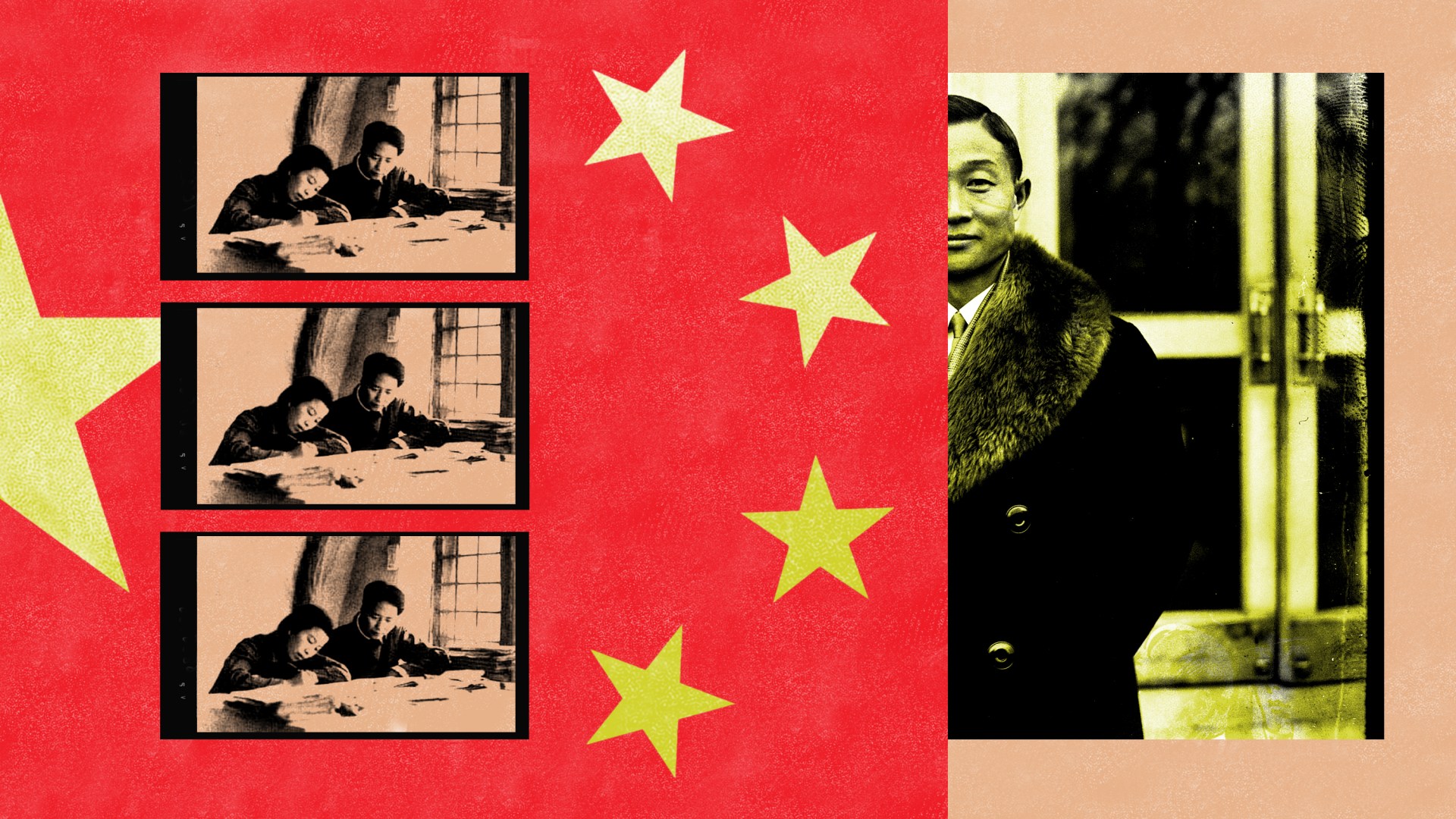By the time Hilary Clinton “put half of Trump’s supporters” into “the basket of deplorables” in 2016, I confess I was frustrated enough to largely agree with her—even though she was talking about people I cared about in communities like mine. It seemed simple to me at the time: If you don’t want to be called “deplorable,” maybe don’t behave so deplorably.
Eight years later, I don’t need to rehash all the reasons I’d come to feel that way. The excesses of Trump and his loyalists are widely recognized, even among many Trump voters. My experience through those years is also familiar to many moderate evangelicals, who, like me, grew increasingly baffled as our faith leaders, friends, and family wholeheartedly endorsed a man who reflected none of our shared values, values that for so long we’d loudly insisted were bedrock and nonnegotiable. How could this be happening?
Though I’m ashamed to say it now, my confusion hardened into cynicism as I consumed a steady diet of commentary about the danger posed by MAGA voters. I grew arrogant, sure of my intellectual and moral superiority over people I’d come dangerously close to dismissing as backwater boors, and less and less aware of my own hubris (Prov. 16:18).
Then came the pandemic. By August of 2020, I was astonished at my own quick pivot—taken aback by how quickly I’d grown thankful to live in a deep red town. I wrote dispatches from West Texas for The New York Times and The Atlantic describing how good it was to live in an area that didn’t kill small businesses out of “an abundance of caution” or sacrifice our children’s educations on the altar of safety.
The responses I got from readers of legacy media in more progressive enclaves (some hate-filled death wishes, some longing for the normalcy I enjoyed) were eye-opening. In the more negative exchanges, I was baffled time and again by my correspondents’ inability to see how they’d become the very thing they hate: bigoted, closed-minded, arrogant, and incurious about the lives of people who are different from them. I ate a slice of humble pie and saw how I’d become enamored with the polished speech and polite niceties of the ruling class, so enchanted that I’d missed both the failures of those I’d grown to admire and the complexity of those I was tempted to deplore.
I still live in a politically conservative community, and I haven’t stopped wrestling with the apparent mismatch between values and votes in the years since. But I’m leaving my impatience and cynicism behind. Though I still share many of the core concerns of the anti-MAGA crowd, I’m wary of the broad, flat brush with which sophisticated politicos paint conservative, religious parts of the country like mine. By the time Trump left office, I’d grown to understand that it isn’t fair—let alone permissible for Christians (Matt. 5:44)—to deplore those who voted (or will vote) for him.
But finding critical yet nuanced writing about my neighbors has been a challenge. Much of what comes from the progressive left—usually some version of the claim that all evangelical Republicans are white Christian nationalists who pose a dangerous threat to democracy—is reductive and one-dimensional. It doesn’t match the reality I see in my everyday life, where, for example, a Trump-voting Hispanic pastor provides shelter and resources to countless migrants.
We Have Never Been Woke: The Cultural Contradictions of a New Elite, a new book from sociologist Musa al-Gharbi, is an illuminating exception to that rule. For anyone genuinely curious about why working-class, culturally conservative Americans, many of them evangelical Christians, remain so loyal to Trump, We Have Never Been Woke is required reading.
In a book that’s both granular in its detail and panoramic in its perspective, al-Gharbi builds a tightly argued case for how the “Great Awokening” is neither particularly novel nor particularly helpful to the marginalized and disenfranchised of American society. Drawing on both his working-class background and the experiences and expertise afforded by his access to some of the most hallowed halls of American academia, al-Gharbi understands that we can’t reduce the current political moment to a battle of blue heroes and red villains.
Unfortunately, he doesn’t offer a road map out of our political predicament. Yet for Christian readers, Never Been Woke’s conclusions suggest the church is uniquely positioned to help repair our divided society—if we can return to our first love (Rev. 2:4) and the love Jesus commands of us (Matt. 22:34–40).
Core to grasping al-Gharbi’s argument is his concept of “symbolic capitalists.” This is a group he defines as the academics, bureaucrats, consultants, journalists, and other “professionals who traffic in symbols and rhetoric, images and narratives, data and analysis.” That is, they are our culture’s elites, often (but not always) wealthy, well educated, and enormously influential, with insatiable appetites for the one sort of capital that might be more useful than cold, hard cash when it comes to getting ahead these days: social currency.
One way symbolic capitalists amass more social currency is to champion social justice and the oppressed. But the main effect of their activism, al-Gharbi charges, is the advancement of their own agendas and personal success.
That’s not an accusation of deception or even cynicism. These elites sincerely (and loudly) believe in ideals like equality and justice, Never Been Woke contends. Yet there’s a “profound gulf between symbolic capitalists’ rhetoric about various social ills and their lifestyles and behaviors ‘in the world.’” To put it plainly, in the parlance of evangelicals: They don’t practice what they preach.
From this premise, al-Gharbi ranges widely. In some ways, the book reads as a “theory of everything,” arguing that underneath the discord so often pinned on the bad behavior of working-class Republicans—people who don’t use the “right” words or put their pronouns in their bios—is a simmering pot of resentment stoked by cultural elites.
Those most skilled at playing the rhetorical “virtue game” are at the top of the societal heap, and their displays of virtue do far less to help the underclass than to protect their own comfort and power. The “Great Awokening” is all fervor and no self-sacrificing love. It turns even well-meaning adherents into hardened ideologues serving a small and capricious god in their own image. It’s legalism, secular-style.
In practice, this looks like calls to defund the police coming mostly from people who live in low-crime neighborhoods. It looks like spending big money to hire DEI experts instead of materially—maybe even self-sacrificially—improving the lives of the poor. It looks like self-identifying into marginalized groups (Sen. Elizabeth Warren’s history as a “Native American” is a prime example) that just so happen to give you a leg up on elite college and work applications.
It looks like calling for pandemic-era lockdowns while ordering DoorDash; or renaming a school named for a confederate general while doing little to ensure the minority students within are learning to read; or thrilling with enthusiasm at a Black Lives Matter march while being irritated by the homeless Black man on your block.
Or, to borrow the apostle Paul’s words, it looks like speaking in the tongues of men or of angels without having love (1 Cor. 13:1).
So we live in a society ruled by symbolic capitalists, al-Gharbi writes, but significantly populated by people they deplore. The result is polarization and mutual disdain, with each side unwilling to give the other a fair hearing or take responsibility for its own sins and errors.
It reminds me of nothing so much as my daughters’ sisterly conflicts. Though I will not name names, one of my children is fiery and hot-tempered, while the other is into covert ops. Though they’re each guilty of instigating arguments, over the years I’ve learned that some of the trickiest situations to navigate start with the quiet provocateur deliberately pushing her less-restrained sister over the edge. When I intervene, she’s all innocence: “What did I do? She should have better self-control.”
It’s easy to exclusively blame the child with the explosive reaction. It’s also, often, a mistake. And the same is true on a much larger scale. Yes, MAGA fanaticism is a problem. Racism and storming the Capitol are wrong. But the “deplorables” have real concerns that deserve to be heard, not manipulated and inflamed by opportunistic politicians. To refuse to listen to the story beneath the noise of outrage—even when the outrage is offensive and crass—only drives us further apart.
As Christians, we should know this. Jesus’ answer to the problem al-Gharbi describes is for us to take seriously his command to love the least of these and to lay down our lives for our friends, including the ones in the red hats. It’s to meet with Nicodemus and to dine with Zacchaeus.
Al-Gharbi is not a Christian. After a crisis of faith resulted in his “abandoning a calling” to become a Catholic priest, he entered a season of atheism before converting to Islam. Some Christians, to their peril, will dismiss We Have Never Been Woke on this ground alone. Others will read with misplaced glee, touting it as a masterful book that “owns the libs.” Either response would miss an opportunity to grow in wisdom and love.
I had a recurring thought as I read this book: I cannot believe he’s writing this. I cannot believe it’s getting published.This book doesn’t reflect well on the gatekeepers of all the institutions al-Gharbi needs on his side to succeed in his field. For that reason alone, many people would not have written this book or at least would have picked a different, softer angle.
After all, al-Gharbi isn’t a right-wing pundit lobbing bombs at the left from a safe perch at Breitbart. As he repeatedly acknowledges, he’s a symbolic capitalist, too. He’s asking his peers to be honest with themselves about their complicity in America’s social breakdown. He doesn’t question their motives or principles, but he does reveal the tension produced when those principles are paired with a very human desire to maintain one’s advantages and to pass them on to one’s children.
That gentle example deserves imitation. What might it look like if more of us—Democrats and Republicans, elite and working class—took the time in the lead-up to the election to admit how our own behavior has failed the test of 1 Corinthians 13? What if we confessed that we also have conflicting desires and betrayed principles? How can we better listen for God calling us to honesty about ourselves, repentance where we have ignored or maligned our neighbors, and real service to others?
Christians are also uniquely positioned to respond to al-Gharbi’s warnings about modern identity politics, in which some groups are encouraged to take great pride in their identities while others are strongly discouraged from doing the same. As al-Gharbi explored in a conversation with political scientist Yascha Mounk, this “asymmetric multiculturalism” is celebrated on the left, but it’s socially unstable. We should lean into what unites us, he advises, instead of emphasizing differences and valuing some while denigrating others.
“There’s a lot of research that shows that actually it’s a lot easier for people to [get along] if you start by foregrounding things that people have in common—like ‘we’re all Americans’ or ‘we’re all Christians,’” al-Gharbi said in his conversation with Mounk. “One important path forward is to find ways of appealing and justifying and affirming superordinate values, superordinate identities, common goals, shared interests,” he continued. “If you can’t build things up—if you’re only focused on criticizing and deconstructing and problematizing and tearing things down—it’s really impossible to meaningfully sustain [shared] identities and shared goals and shared values.”
This is where the church can shine if we turn away from our political idols and self-aggrandizement and turn toward Jesus. We can remind one another that what we have in common in Christ is far more profound and significant than what separates us. We can move from that common ground to be agents of social repair in our communities. With God’s help, we can live and serve and even engage in politics in humble, practical, other-oriented love.
Despite his deconversion, al-Gharbi concludes We Have Never Been Woke by quoting Jesus in Matthew 6 and warning against “performative displays” of righteousness. That’s a problem on the left, the book’s main subject for critique, but it’s also a problem on the right and in every group of fallen, sinful humans. It’s a problem in my own heart. “Ultimately, Jesus argued, people have to choose what’s really important to them,” al-Gharbi writes, “and it’s a choice they make with their actions, not their words. You know the tree by its fruit.”
As I came to better understand in the years between 2016 and 2020, conservatives can rightfully dislike the rotten fruit of our cultural elites. But if we’re to fully benefit from al-Gharbi’s message, we must turn this scrutiny on ourselves as much as our political rivals: What fruit are we bearing? Is it carefully arranged to make us look righteous? Or is it good and abundant and beautiful and life-giving fruit, bringing glory to God and nourishment to all?
Carrie McKean is a West Texas–based writer whose work has appeared in The New York Times, The Atlantic, and Texas Monthly magazine. Find her at carriemckean.com.
























































